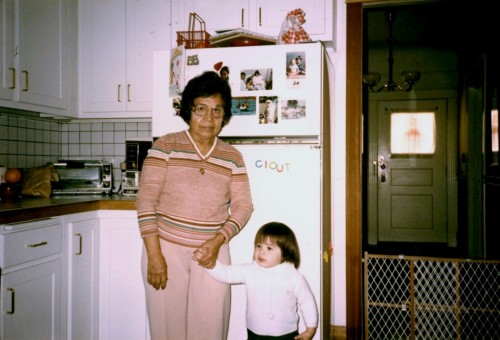Larry Summers is Wrong: Why Learning Multiple Languages is So Valuable
Today’s New York Times features a Room for Debate section about the need to learn multiple languages. Six panelists, including author Stacie Berdan, agree that it is crucial to learn more than one language to operate in the new, globalized world. They all refute an assertion by Lawrence Summers, former president of Harvard University and former […]
Today’s New York Times features a Room for Debate section about the need to learn multiple languages. Six panelists, including author Stacie Berdan, agree that it is crucial to learn more than one language to operate in the new, globalized world.
They all refute an assertion by Lawrence Summers, former president of Harvard University and former secretary of the Treasury (and a man with a history of making blanket statements), who wrote What You (Really) Need to Know.
The world is much more open, and events abroad affect the lives of Americans more than ever before. This makes it essential that the educational experience breed cosmopolitanism — that students have international experiences, and classes in the social sciences draw on examples from around the world. It seems logical, too, that more in the way of language study be expected of students. I am not so sure.
English’s emergence as the global language, along with the rapid progress in machine translation and the fragmentation of languages spoken around the world, make it less clear that the substantial investment necessary to speak a foreign tongue is universally worthwhile. While there is no gainsaying the insights that come from mastering a language, it will over time become less essential in doing business in Asia, treating patients in Africa or helping resolve conflicts in the Middle East. [emphasis mine, read more here]
This strikes me as arrogant and short-sighted. Even if more non-Americans are learning English and Google Translate is getting better, that does not negate the value of learning other languages.
Being able to speak more than one language has had an immeasurable impact on my own life.
I learned Spanish before the age of five, thanks to my wonderful Nana Petra. While my parents were working, she totally spoiled me with home-cooked Mexican meals, lacy white dresses, and games of Lotería. She drilled me on pronunciation (A, E, I, O, U) and taught me nursery rhymes.
This early exposure to Spanish paved the neural pathways in my brain to let me think in more than one language.
I continued to study Spanish all through school and all through college, including a year here in Chile.
When I graduated with a degree in Latin American Studies, I moved to China to teach English at a university near Shanghai. I’d never studied Chinese and never been obsessed with Asian culture, but I was able to quickly pick up the basics of child-like Chinese through conversations with vegetable vendors, security guards, and migrant workers on the train.
Over the next few years, I took many private lessons and small-group classes. Thank you Layla and Xiaofei for helping me elevate my Chinese skills from toddler level to that of a nine-year-old who likes to talk about wind turbine engineers and garbage incinerators. Learning Chinese gave me access to get beyond China’s single story, beyond the world of tour guides and textbooks, to take part in everyday life.
Now back in Chile, I use Chinese less. In the last month I’ve used it twice: at a restaurant and with a new Start-Up Chile entrepreneur from China. But linguistic crossover shapes the way I see the world.
Last week I led an entrepreneurship seminar at Casa de la Mujer, a community center in a poorer neighborhood of Santiago. The last day, fabulous Start-Up Chile video intern Javiera came with me to film the class and interview me and the ladies about our experiences. (The video will be ready soon!)
I talked about the course in English and it was SO HARD! You might be thinking, but Leslie, you’re AMERICAN. English is your first language. How can it be hard?
Since I taught and thought about the class in Spanish, explaining it in English felt distant, foreign, and even patronizing. I stumbled over words; I felt like English made the distinctions between myself and the ladies too dramatic. In Spanish it felt more communal, more egalitarian, more personal. My testimonial, of how leading discussions with these woman has inspired me as an entrepreneur, flowed with enthusiasm in Spanish, but in English it felt forced, hesitant. Good thing Javiera took lots of footage: there should be at least a few clips in which my English is fluent and confident.
Linguistic crossover has had such a profound impact on my worldview. It has given me a broader understanding of words and grammar, but more importantly the tools to navigate the world with flexibility and empathy.
I truly can’t imagine life in only one tongue. I wish every preschooler could have a multilingual headstart!
